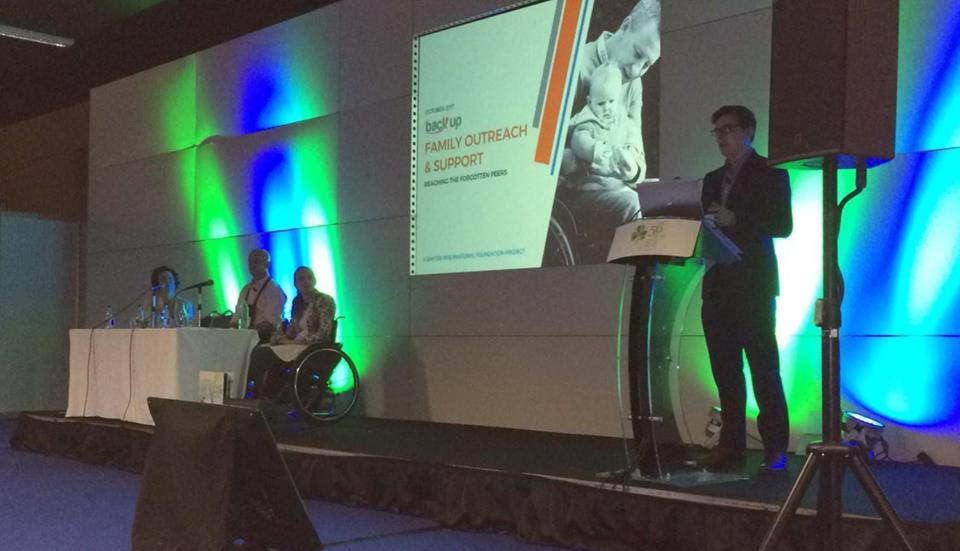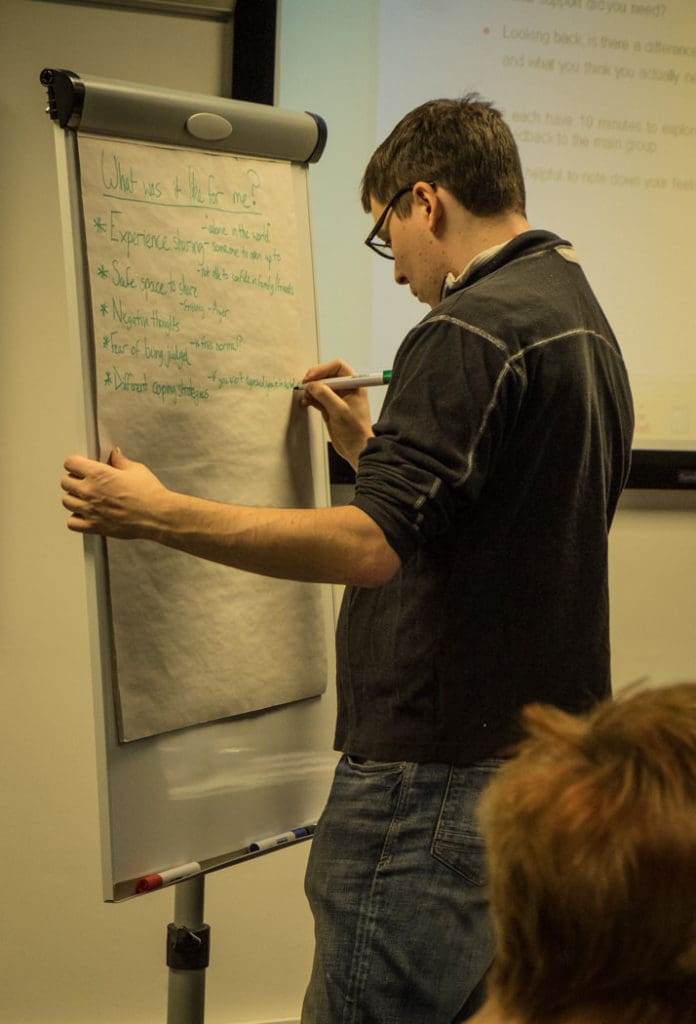Andrew Dickinson | The future of family outreach
7 December 2017

I took over Back Up’s Family Outreach and Support service in April 2017 and, since then, have been working across the UK to increase support for and awareness of the needs of family members. My brother sustained a spinal cord injury in a car accident in 2009. In that moment, his life, my life, our family’s life was completely turned on its head.
At the time, there was little-to-no support for me as a family member. I had a thousand questions and no one I felt comfortable asking. I didn’t want to ask my parents and didn’t know who to ask at the hospital. I felt completely lost but also felt like it was expected of me to get un-lost quickly, as I was repeatedly reminded that I was going to be an important part of my brother’s support network when he left hospital. I remember thinking: “How can I be part of his support network when I don’t know what I’m supporting with?”
We know that family is crucial to people adjusting well to spinal cord injury, but the general practice of rehabilitation is still catching up with the idea that in order to keep the unit going, we need to support everyone as part of rehabilitation – not just the person with the injury.
This has been at the heart of what the Back Up Family Outreach and Support Service has become: proactively reaching out to family members and bringing them into the practice of rehabilitation.
When the opportunity came up to speak at the 56th International Spinal Cord Society Conference – the biggest meeting of professionals in the world of spinal cord injury – I leapt at the chance to discuss the benefits of peer support, which is right at the heart of our model for supporting relatives of those with a spinal cord injury.

Andrew at a mentor training weekend
One key message I highlighted in my presentation was that, while clearly having needs, when offering support directly to family members, one is often pitching to a reluctant audience. Their reluctance is not directed towards the person offering support, it is directed inwardly at the notion of having a need. I can speak from my own experience here: even as I type this now, the voices which echoed in the back of my head at the time of my brother’s injury and the venom in them has not changed: “How can you possibly say that YOU found this hard?” “This didn’t happen to you. How can you be so selfish?”
This was something I’d encountered a lot in my research: support being attempted and then abandoned because families weren’t engaging. What I tried to impress through my presentation is that the answer is not expecting people to react differently but about pitching support differently. It may sound like a marketing strategy, but if you had told me that there was a part of rehabilitation designed to support me with my needs I would not have gone. However, if I’d been told that it was important that I come to rehabilitation sessions because it would help me to support my brother to understand what he was dealing with, then I would’ve been there in a heartbeat.
Standing in that conference centre, giving my presentation, was terrifying. But the response to the presentation was overwhelming. I had psychologists and professors from the USA, Canada, Malaysia, Australia and Sweden coming up to me and thanking me for what I had said – asking me for my email so that we could discuss how to support relatives where they were.
I knew that this need to support families was recognised in some places; some UK spinal centres have been offering support successfully for years. I also know that creating a consistent model of support that is seen as part of standard rehabilitation will take a long time. But it looks like there’s plenty of appetite to put in the effort. Back Up is here for everyone; it’s exciting to think that what we’re doing might help people all over the world.
If you would like to find out more about the support we offer to family members, you can call Andrew, our Family Outreach & Support coordinator, on 020 8875 1805 or send him an email.


